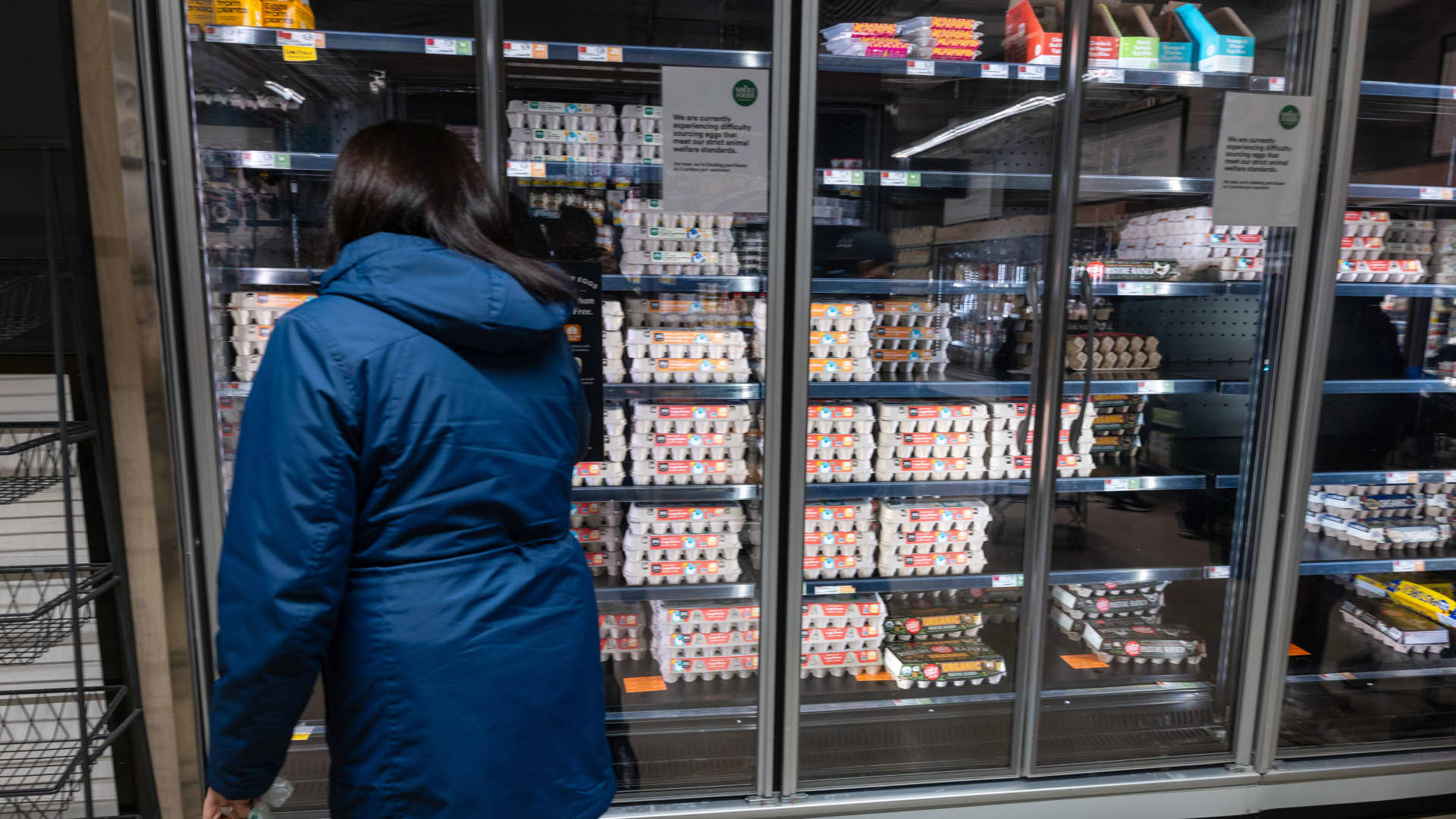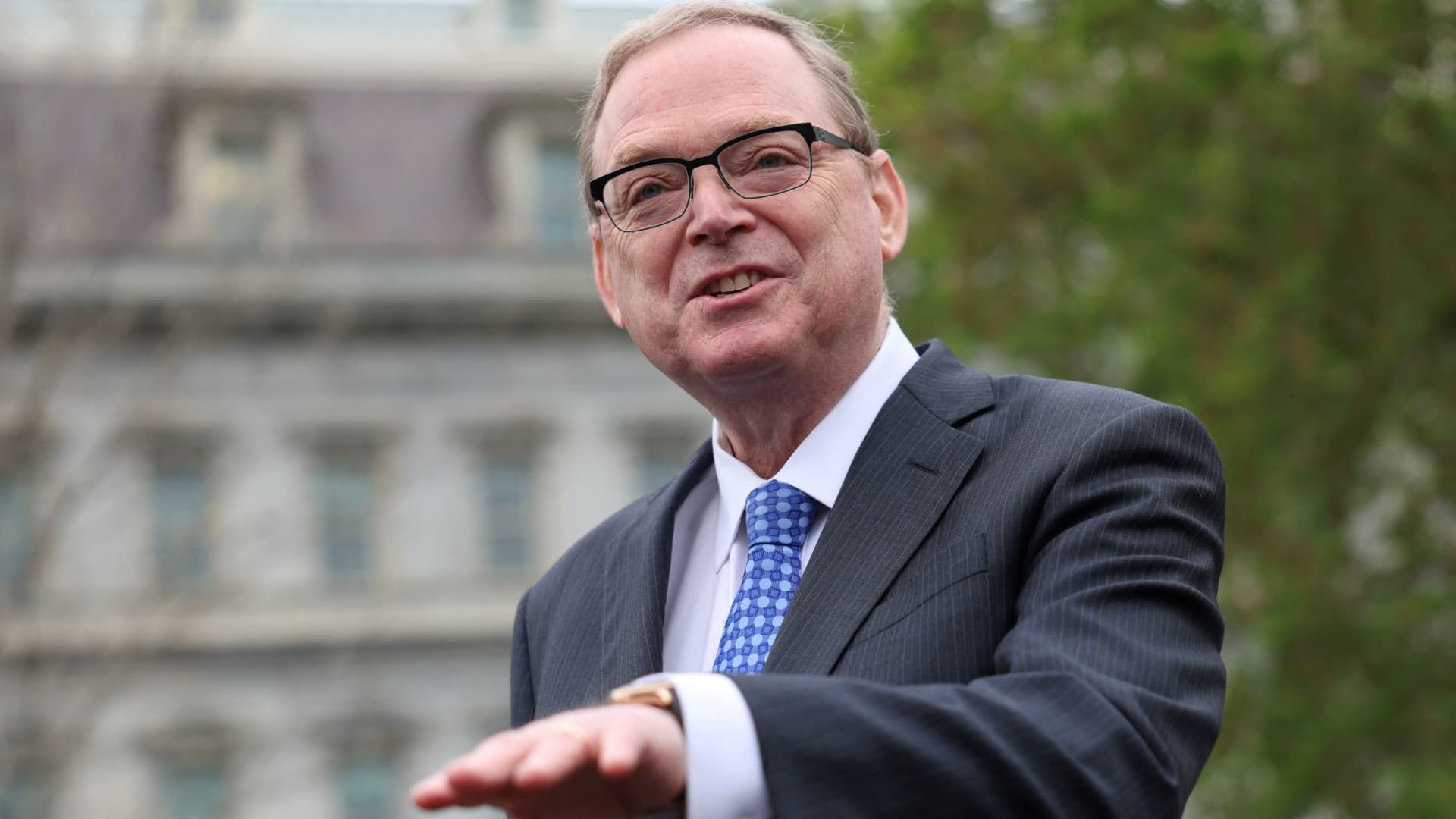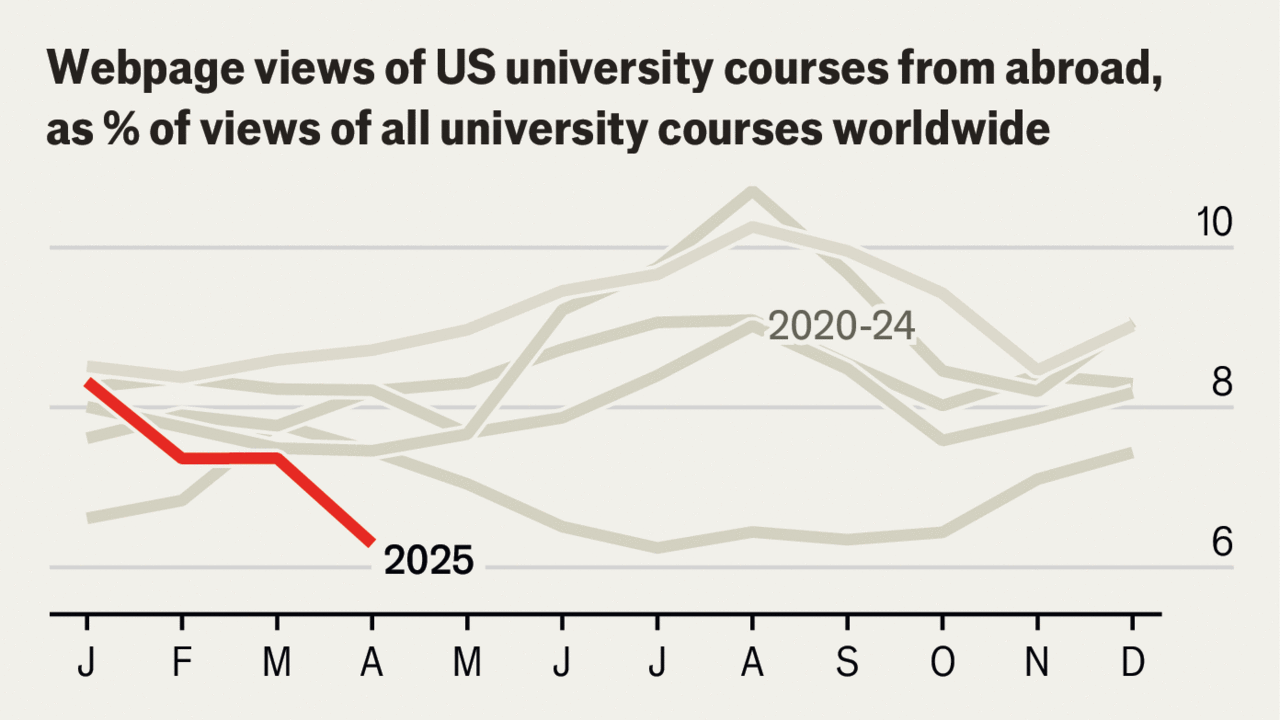Cartons of eggs are displayed at a grocery store with a warning that limits will be placed on purchases as bird flu continues to affect the egg industry on Feb. 10, 2025 in New York City.
Spencer Platt | Getty Images
The January consumer price index report is likely to tell a familiar story: Another month, another expected miss for inflation as it relates to the Federal Reserve‘s goal, with concerns aplenty about what happens from here.
So instead of looking for hope from the headline readings, which aren’t expected to change much from December, markets will pore through the details for trends that could shed some hope that the Fed eventually will be able to start lowering rates again.
“Inflation is stuck above target, with risks skewed to the upside, activity is strong, and the labor market appears to have stabilized around full employment,” Bank of America economist Stephen Juneau said in a note. “If our January CPI forecast is correct, the case for the Fed to stay on hold will strengthen further.”
Bank of America is one of the most pessimistic voices on Wall Street in terms of expecting further Fed easing.
In fact, the bank’s economists believe the Fed will stay on hold for the rest of the year — and beyond — as inflation holds higher, the labor market remains strong and the economy generally stays out of the kind of trouble that would necessitate rate cuts. Traders otherwise figure the Fed to approve a quarter percentage point reduction in July and then stay put, according to CME Group data.
More immediately, Bank of America’s forecast pretty much meshes with the Dow Jones outlook for January CPI: a monthly increase of 0.3% for the all-items index and a 12-month inflation rate of 2.9%, the latter same as December. Excluding food and energy, the respective core readings are projected at 0.3% and 3.1%, the annual mark just a notch down from the 3.2% reading in December.
From a details standpoint, increases are likely to be driven by rises in car prices and auto insurance as well as communications, according to Goldman Sachs. The firm expects only moderate downward pressure from airfares and, importantly, the rent-related categories that make up about one-third of the CPI weighting and have been largely responsible for inflation holding above the Fed’s 2% goal.
Things only get more complicated from here.
Optimism despite tariff concerns
While economists expect a good share of disinflation from some key categories, President Donald Trump’s tariffs could act as an inflationary counterweight.
“Going forward, we see further disinflation in the pipeline over the next year from rebalancing in the auto, housing rental, and labor markets, but an offset from an escalation in tariff policy,” Goldman economists said in a note.
There’s been some good news lately, though. While the University of Michigan’s consumer survey showed a surprising bump in inflation expectations, other measures indicate the outlook is actually softening.
The National Federation of Independent Business survey for January showed that just 18% of the small business gauge reported inflation as being their biggest issue, the lowest level since November 2021. Also, the Cleveland Fed’s first-quarter Survey of Firms’ Inflation Expectations showed that CEOs and other top executives see CPI to run at a 3.2% rate over the next 12 months. While that’s well above the 2% standard, it is a sharp drop from the 3.8% in the fourth quarter.
Amid the conflicting information, the Fed is expected to stay put.
Fed Chair Jerome Powell on Tuesday said the central bank is in no rush to cut rates further, while Cleveland Fed President Beth Hammack noted the persistence of inflation that could be exacerbated by tariffs as reason to stay put.
“While monetary policy needs to be forward-looking in nature, forecasts are no substitute for realizations. Or as they might have put it in Jerry Maguire, ‘show me the low inflation,'” Hammack said.

 Accounting1 week ago
Accounting1 week ago
 Economics1 week ago
Economics1 week ago
 Personal Finance1 week ago
Personal Finance1 week ago
 Accounting1 week ago
Accounting1 week ago
 Finance7 days ago
Finance7 days ago
 Economics1 week ago
Economics1 week ago
 Economics1 week ago
Economics1 week ago
 Economics1 week ago
Economics1 week ago





















